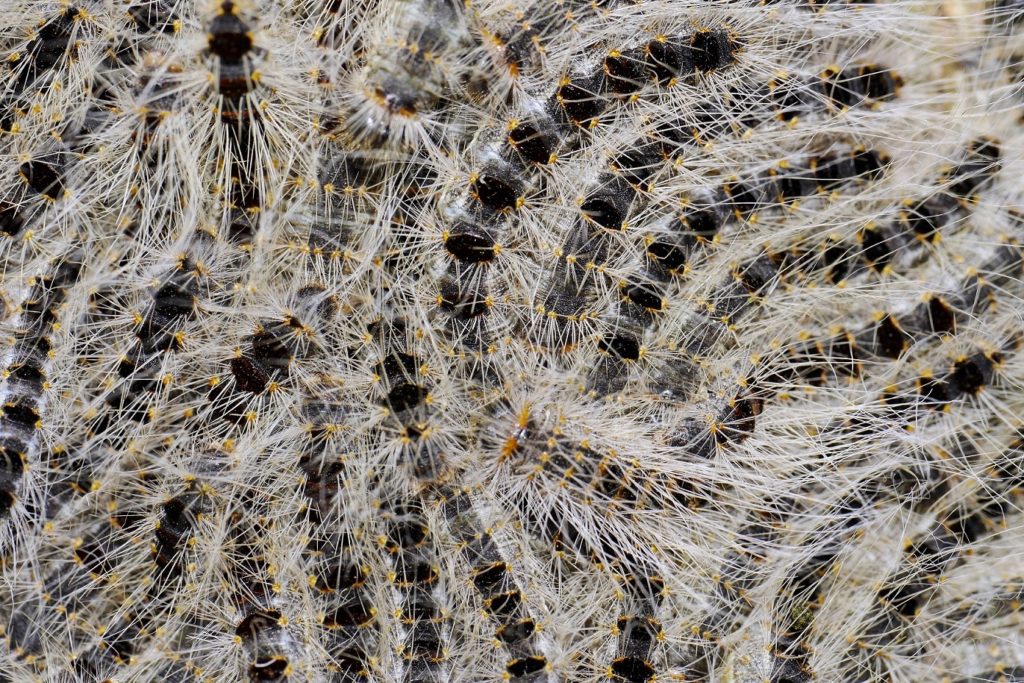Schools had to be evacuated because of the oak procession spinners
Oak processionary moth affect, first, how a seemingly harmless caterpillars, but they can also be us humans is quite dangerous. This makes the evacuation and temporary closure of two schools in a small town in Baden-Württemberg clearly. Around 40 children had developed conspicuous symptoms, which were associated with oak procession of crackpots, whose hairs poison put in contact with a Nettle-free.
Two schools vacated twice
Caterpillars of the oak processionary moth, have catered to the Schiller school and the Max Planck Realschule in Bretten near Karlsruhe (Baden-Württemberg) within a few days, twice, that the schools had to be evacuated. Around 700 students had to leave the building. According to a communication from the city showed on Monday, about 40 children mild-to-moderate allergic reactions are due to the animals. Four were unconscious. The young patients were medically supervised.

Caterpillar hairs contain a toxin
“The cause of the recurrence of the allergic reactions is assumed for the Moment that the hairs of the oak processionary moth on Friday and at the weekend were blown by the Wind into the School and classrooms”, – stated in the message.
The oak processionary (Thaumetopoea processionea) is a nondescript grey-brown moth. The Moth itself is harmless, but the young can be dangerous.
The caterpillars of the animal to hatch – depending on the weather, – in April or may and go through several weeks of various developmental stages and molts.
The hairs of the caterpillars contain the hives Thaumetopoein poison. They represent an acute health risk for people.
Severe allergic reactions are possible
According to experts, the fine stinging hairs in favourable weather can be carried by air currents over long distances.
According to the lower Saxon state health office (NLGA) you can stay up to one year toxic.
In case of skin contact or by Inhalation can lead to allergic symptoms.
“The allergic reaction of the immune system can individually be very different,” says the Bavarian state Institute of forestry (LWF) on your website.
“In the case of people affected, the sensitivity and reaction intensity increases with the number of individual contacts of the oak processionary moth-flame of hair steadily,” according to the experts.
The typical symptoms are local skin rashes (caterpillar dermatitis), which are expressed in specific skin redness, slight swelling, intense itching and Burning, among other things.
In addition, hives all over the body will often form. “Irritation to the mouth and nasal mucosa by Inhalation of the hairs can lead to Bronchitis, painful cough, and Asthma,” wrote the LWF.
And: “Accompanying symptoms such as dizziness, fever, fatigue and connective occur General skin inflammation. In individual cases, hypersensitivity tend to be sensitive people to have allergic shock reactions.“
Showers and hair wash
After contact with the caterpillar hairs, you should change according to the NGLA immediately the clothes, have a shower and wash the hair.
“Clothes at 60 °C, wash with plenty of water, the stinging of the caterpillar venom to destroy the hair / rinse”, the professionals.
And the Berlin Senate administration for health, care and equality indicates of your website, in case of symptoms consult a doctor.
“Don’t be Shy! In the case of severe reactions such as shortness of breath or Asthma, please call the rescue service,“ warns the Agency.
The school building will be professionally cleaned
Also, in Bretten, the parents were asked to wash the dresses and Jackets for your children as a precautionary measure.
According to the city, both school buildings are professionally cleaned.
The teaching at both schools for the time being. (ad)
